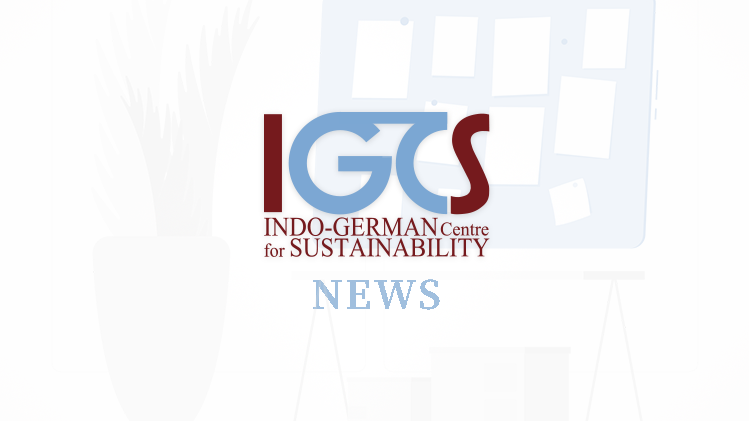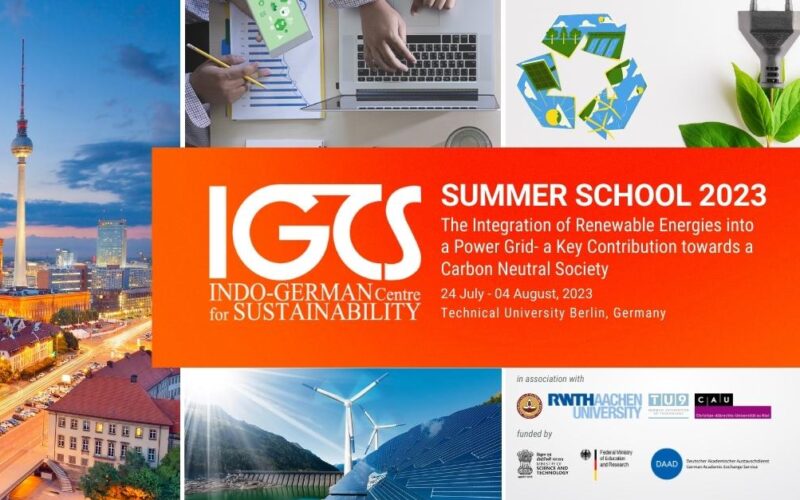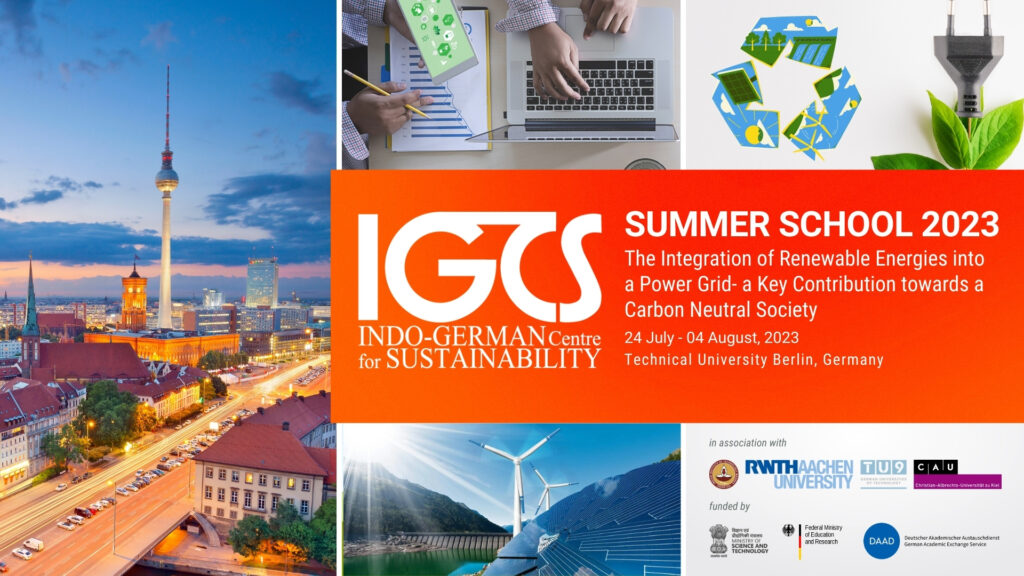Schedule
This Summer School will run for twelve days from July 24th until August 4th 2023 and will consist of lectures, group works, panel discussions, excursions and intercultural exchanges.
The Summer School will be held as a physical event at the Technical University in Berlin, Germany.
Participants
The course is open to German* and Indian Master’s and PhD. Students. Knowledge of sustainability topics in the field of energy is of advantage. The number of participants is limited to 30 (15 German /15 Indian).
Selected participants from German universities will receive a mobility scholarship.
Selected participants from Indian universities will receive a mobility scholarship as well as a scholarship to cover living expenses during School.
IGCS is covering the costs of stay for all participants and will provide lunch on the weekdays.
*Non-German students and university graduates can apply if they are enrolled in the course of study at a German university to obtain a degree at a German university. For more information check DAAD-Website: Bewerbungen um ein Stipendium (German only).
Application
Interested students may apply through the 2023 Application Form. The application deadline is 01st of May 2023. Applications received after this date will not be considered.
The link is open from 31st of March – 1st of May 2023(7 PM CET/10:30 PM IST). You will need to register first before you enter the actual form. You can switch between German and English. Please read the instructions carefully, including the help notes attached to many entry boxes.
Please prepare the following documents to be uploaded through the form:
- CV
- Transcript of records of last completed semester/graduation certificate.
- Letter of recommendation from an academic supervisor. It should state your academic and personal qualifications for participation in the IGCS Summer School.
- Enrolment certificate of your University
- Passport Copy
- Motivation Letter
Positive results will be announced in the beginning of May. We kindly ask you to refrain from inquiries about the application status in the meantime. You will be informed if you are not accepted and your data will be deleted.
Students may be eligible to receive credit points for their participation in the IGCS Summer School. Please check with your home institution.



